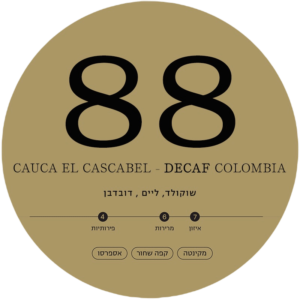Luis is an exceptional producer. In 2006, he became known as he won 1st place in the renowned Colombian Cup of Excellence with a micro lot of washed Caturra that scored 91.48 and earned him a prize that allowed him to purchase additional land and increase his production from 1 to 5 hectares.
Luis Alberto was born in Pitalito in 1970. With his wife Floridali Pinto and 4 children are a family completely dedicated to growing and exporting the coffee they grow on their farm. Luis Alberto Jojoa started his coffee journey as a picker working on Antonio Castro’s farm (now his neighbor). He eventually worked up the courage and asked Antonio to sell him a plot of land, so that he could start producing his own coffee. Antonio agreed, but unfortunately, Luis Alberto did yet have enough money. He offered his labor as a form of payment.
Five years later, Don Luis became the proud owner of La Perla del Otún in 1994. “I earned it with the sweat of my brow and honest work”, he says. He named his farm ‘the pearl’ because of the beauty that surrounds it. In the farm at the beginning, he produced all the products for the family everyday needs. With some savings, he bought a lot of 1 hectare dedicated only for coffee production and planted it with a density of 6000 Castillo and Caturra coffee trees per hectare. Luis Alberto Jojoa is dedicated to his job, very quiet and shy. He is also a member of the Managing Council of the associative group Coomagro.
The borders of the farm are defined with native trees and the coffee is shade grown under a high canopy of rainforest trees still preserved. He makes rational and responsible use of the water in the farm as the water comes from a community aqueduct. Luis is conscious of the preservation of the flora and fauna of his region and is very much connected and respectful of the natural surroundings that allow his farm to flourish. He uses the pulp of the coffee as an organic fertilizer.
He built the infrastructure for an ecological wet milling process, with the training and support of the extension service of the Federation. The drying process of the coffee is done on raised beds but starts in a parabolic drier for 12 Hrs to allow a more even drying. The end result is a great coffee lot that has tasting notes of Black berries, floral, and delicate acidity.






